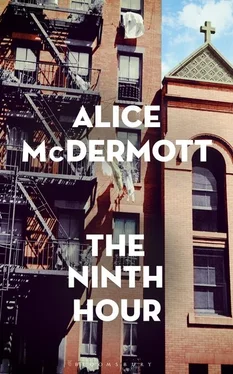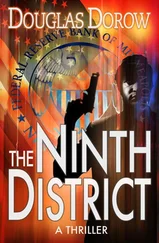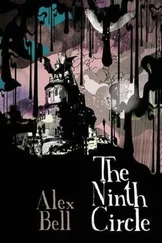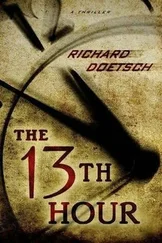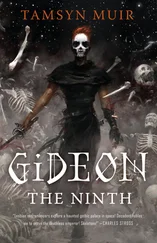She turned to her mother. She felt the sensation of a plunge, with not even a stranger’s shoulder beside her.
“And where will you go?” her mother asked her.
* * *
WHEN THE TWO WOMEN RETURNED to the living room, Mr. Costello—in his bare feet—was standing undecided by the front door with his head bowed, like a man waiting for an elevator. Shyly, he looked up at her mother, and then, as they passed him, he slipped into the bedroom.
Her mother told her to sit at the table. Sally noticed that the dining room chair had been neatly returned to its place. Moments later, her mother brought two plates with the ham and the eggs. She sat down with her daughter. Mr. Costello appeared in his shoes and his white coat and his hair combed down and his cap in his hands. He said, “I’ll be going, then,” politely, and her mother only looked up briefly—and the affection in her eyes was both brand-new and immediately familiar, a reminder of something Sally had always known: the strength of her mother’s capacity to love, the assurance of it.
“Goodbye, dear,” her mother said.
They ate in silence. All was tasteless in her mouth. She felt again the movement of the train beneath her. If she closed her eyes, she knew, she could make herself believe she was still on board, in the suffocating darkness, looking out to this dancing light—this room, this day, her mother’s sure hands, her living presence, her happiness—looking out at it all with what might have been her father’s own eyes: envious, lonesome, buried, bereft.
MRS. TIERNEY SAID, “Take Patrick, then. He’s got his name.”
Mr. Tierney said, “I will.”
It was the end of the argument. They were both red-faced. Both licked the spittle of shouted words from their lips, satisfied. His parents’ arguments, our father said, erupted suddenly, like a street fight, and then, just as rapidly, concluded. Peace descended. Something like happiness.
Their six children came to understand that a certain satisfaction might be found in setting a beloved’s blood boiling.
A telegram had arrived from Poughkeepsie: Mr. Tierney’s father was dead. Mr. Tierney said he must go to the funeral, and Mrs. Tierney asked if he was going to do her the indignity of expecting her to accompany him. He said no, but he would take the children. She said she would not have them missing school for a man they’d never met. He said he would take only the boys, then. She said Michael’s job was already hanging by a thread.
“I won’t stay long,” Mr. Tierney said.
Mrs. Tierney said, “You’re a fool to go at all.”
“I’m his only child,” Mr. Tierney said.
“Didn’t he know that himself?” Mrs. Tierney replied.
“I won’t be plagued by his ghost,” Mr. Tierney shouted.
“He had no use for you when he was alive,” Mrs. Tierney said coolly. “Why would he be coming to you dead?”
“There’s ice water in your veins,” he said.
“There’s sawdust in your head.”
“He’s dead.”
“He let your mother die without you.”
“I didn’t know.”
“The bastard didn’t tell you.”
“He was bitter.”
“He was hateful. He hated me.”
“Us.”
“Us, then.”
“Have a heart. There was a monkey on his back. That cripple in the room upstairs.”
“Where’s my violin?”
“Have some pity.”
“Have some sense.”
“I’ll go alone, then.”
There was a pause. He had spoken the one word she could not abide: alone. All through his growing up, our father said, he couldn’t walk to the corner for a newspaper without his mother urging him to take someone along.
“Take Patrick, then,” she said. “He’s got his name.”
“I will,” he said.
It was the laughter in her voice when next she spoke that signaled to their children that the fight was over. That it had brewed some pleasure for them both. “If the bastard’s going to haunt anyone,” she said, “it will be Patrick.”
Mr. Tierney said, “A ghost could do worse.”
And so our father found himself on the train to Poughkeepsie for the funeral of his grandfather, and namesake, a man he’d never met.
Although Michael Tierney was wearing what he called his “civilian clothes”—starched collar, vest, fine dark wool suit with a thin, pale violet stripe, gleaming shoes, brushed bowler—he retained nevertheless his erect and elegant doorman’s bearing throughout the ride. There was a gold watch and a fob, subtly displayed across his trim middle. A smooth cheek newly shaven and redolent of bay rum. A fine chestnut mustache, gleaming like polished wood, trimmed and combed.
The suit Patrick wore was also fine. It had been purchased from a Jewish tailor on the Lower East Side—one of his father’s “cronies”—for his older brother’s high school graduation just the year before, but because Tom had found work at the Navy Yard, and not in an office, it had been stored ever since in a linen suit bag, weighted with mothballs and cedar blocks.
Given the short notice—the telegram had come from his grandfather’s maiden sister, Rose, just two days ago—his mother had only a single sunny afternoon to air it at the window, and so it retained a whiff of what his father called “its hibernation.” Comically, Mr. Tierney sprinkled his son with cologne before they left the apartment, making the sign of the cross and murmuring in Latin. And so they had gone off to the train in good humor.
His mother had refused to come. Perfectly understandable, Mr. Tierney said, given how the man had stood against their marriage. Because she was an immigrant. Because she was a servant girl in the home of an Upper West Side family who summered in Poughkeepsie—a wealthy family that his own father had admired and envied and aspired to imitate. It had been an elevation for his father, a schoolteacher, the child of immigrants himself, to be invited to the summer home of such people. A confirmation of the schoolteacher’s growing status as town sage, as cosmopolitan man-of-the-world, to be invited to converse with a city man of such wealth, in his own summer place, about business and politics, philosophy and learning.
And an irreconcilable insult that the schoolteacher, so honored, should bring along a son—“Yours truly,” Mr. Tierney told Patrick on the train to Poughkeepsie, “and not much older than you are now”—who, rather than attending to the after-dinner conversation, rather than seizing the opportunity to make himself remarkable to this businessman from Manhattan, a man who might do him some good, put his eyes on a buck-toothed servant girl and refused to draw them away.
“Of course your mother’s not buck-toothed,” his father said on the train, “she’s a beauty beyond compare—but that was my father’s anger speaking, his disappointment and his rage. He didn’t want me coming down in the world, he wanted me going up, up, and up.” On the train, Michael Tierney thrust his right hand into the air as if he were elevating a great weight. Then he dropped it, casually. Shrugged.
It was a fine spring day, and as soon as the train left the city, the smell of new grass and rich earth, sweet country air, began to fill the cars. At each station stop, the sun was morning-bright and full of lovely, floating things, white seed pods and green insects, butterflies and bumblebees. There were urns of vivid flowers at each train station, and the men and women who disembarked seemed all to be greeted by handsome children and happy dogs. His father had given him the window seat when they boarded and then sat with regal bearing on the aisle, tipping his hat to every new passenger. “Lovely day,” he said. “Madam.” “Sir.” “Good morning.” “Fine weather.” The doorman’s trade.
Читать дальше
